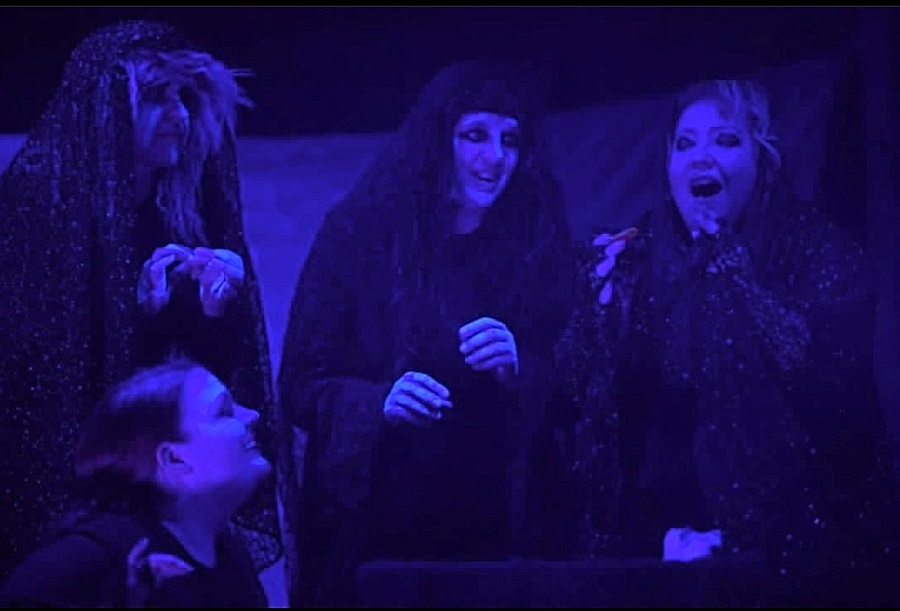Clearfield Arts Studio Theatre Features Macbeth
December 19, 2022
Clearfield’s local, downtown theatre, commonly known as CAST, held its performance of Shakespeare’s Macbeth on November 3-5 and 10-12. The show was directed by Gayle Gearhart, who has been directing Shakespeare’s shows at CAST for decades. In this Scottish play, three witches tell the Scottish general Macbeth that he will be King of Scotland. Encouraged by his wife, Macbeth kills the king, becomes the new king, and kills more people out of paranoia. Civil war erupts to overthrow Macbeth, resulting in more death. In this article, Steven Weiss, who played the role of Macbeth, shares his experience within the show.
Shakespeare is getting more and more difficult to perform as the universal writing style advances, or rather, simplifies. Most modern plays can be easily interpreted by the audience, but Shakespeare is not for the simple-minded. Besides reciting a couple of Shakespeare’s sonnets during a poetry competition and attending Shakespeare monologue meetings in high school, Steven Weiss has never fully performed Shakespeare on stage. When asked how performing Shakespeare differs from performing more modern shows, Weiss responded, “I took my role having already seen it performed by Kenneth Branagh, Patrick Stewart, Ian McKellan, Michael Fassbender, and Denzel Washington. Every scene was iconic and required a level of focus I hadn’t needed in previous roles.” Weiss took great responsibility into creating his character, and he admired others who did so as well.
With so much attention spent on Weiss’s character, he took it to heart to learn the inner motives of Macbeth. Through his performance, Weiss shares, “The characteristics that define Macbeth, his decisive martial spirit and devotion to his wife, are what facilitate his headlong plunge into the current of fate. A different man would have made more careful moves and – likewise – a different man would never have been approached by the Weird Sisters. ‘Wyrd’ was the old Anglo-Saxon word for Fate or Destiny. Macbeth is as much in thrall as any character, his greatest psychological torture being a keen awareness of the machinations of fate and of mortality.” In order to fulfill this role, Weiss needed to put himself in the shoes of MacBeth and understand why each action was made. Weiss adds how he portrayed those characteristics on stage when he notes, “As the play progressed, it was important for me to communicate that pieces of his humanity were being stripped away act by act. The greatest loss – that of his wife – necessitates a spiritual onstage death. The Macbeth that faces the forces of Malcolm and Siward is no longer a complete man so much as a bloody defiance incarnate.” Understanding Macbeth’s character allowed Weiss to become his character, rather than just act as him.
In terms of experience behind stage, Weiss admitted that his biggest challenge when rehearsing was doing the some of the last scenes where the storyline reaches intensity. He had bruises on his knees from rehearsing sword fights, and his voice was sore from portraying Macbeth’s rage. He did note that the sword fighting was his favorite part to experience in the show.
Weiss’s loyalty to his role was shown through his performance, and his passion for acting all boils down to his understanding of backstory, motive, and the morality behind the story itself. When asked what lesson Macbeth teaches the audience, Weiss stated, “that being a good person does not stop bad things from happening to you. Fate comes for us all and our manner of bearing it makes all the difference.”



